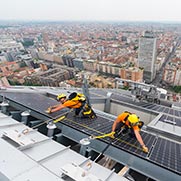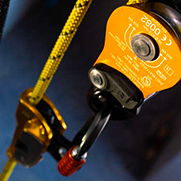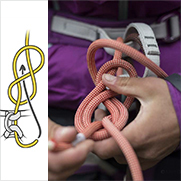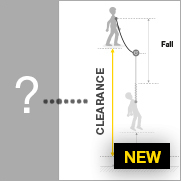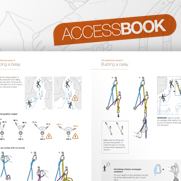ASAP usage on an incline
Warnings
- Carefully read the Instructions for Use used in this technical advice before consulting the advice itself. You must have already read and understood the information in the Instructions for Use to be able to understand this supplementary information.
- Mastering these techniques requires specific training. Work with a professional to confirm your ability to perform these techniques safely and independently before attempting them unsupervised.
- We provide examples of techniques related to your activity. There may be others that we do not describe here.
For moving about on an incline, the ASAP offers the advantage of freely following the user, in both directions of movement.
In case of a fall on a low-angle roof or rough surface, the user's sliding speed can be quite low. In this case, the ASAP does not recognize a fall, and it can follow the user without locking.
This is normal operation.
When the user's sliding speed increases, the device normally locks to stop the fall.
Tests were conducted on a 30° incline.
The average displacement of the ASAP, before locking, was measured for two different sliding surfaces.
On a rough surface, at low sliding speed, the average displacement before locking is 5 m.
On a smooth surface, at medium sliding speed, the average displacement before locking is 3 m.
These values are given for information only, and the results will vary depending on the surface, the slope, the user's position before the fall or the condition of the rope.
In case there is a dangerous obstacle less than 5 m from the user, on a low-angle incline, Petzl recommends making a stopper knot in the rope before the obstacle.
In the case of a roof edge, it is better to be stopped by the knot on the roof, rather than to fall off and be left hanging in midair from the ASAP.
Notes:
- While sliding, the user can grab the ASAP without inhibiting locking.
This can allow him to stabilize himself and can also trigger locking.
- With the ASAP LOCK, use the locking function so that the device stays in place regardless of the sliding speed.


